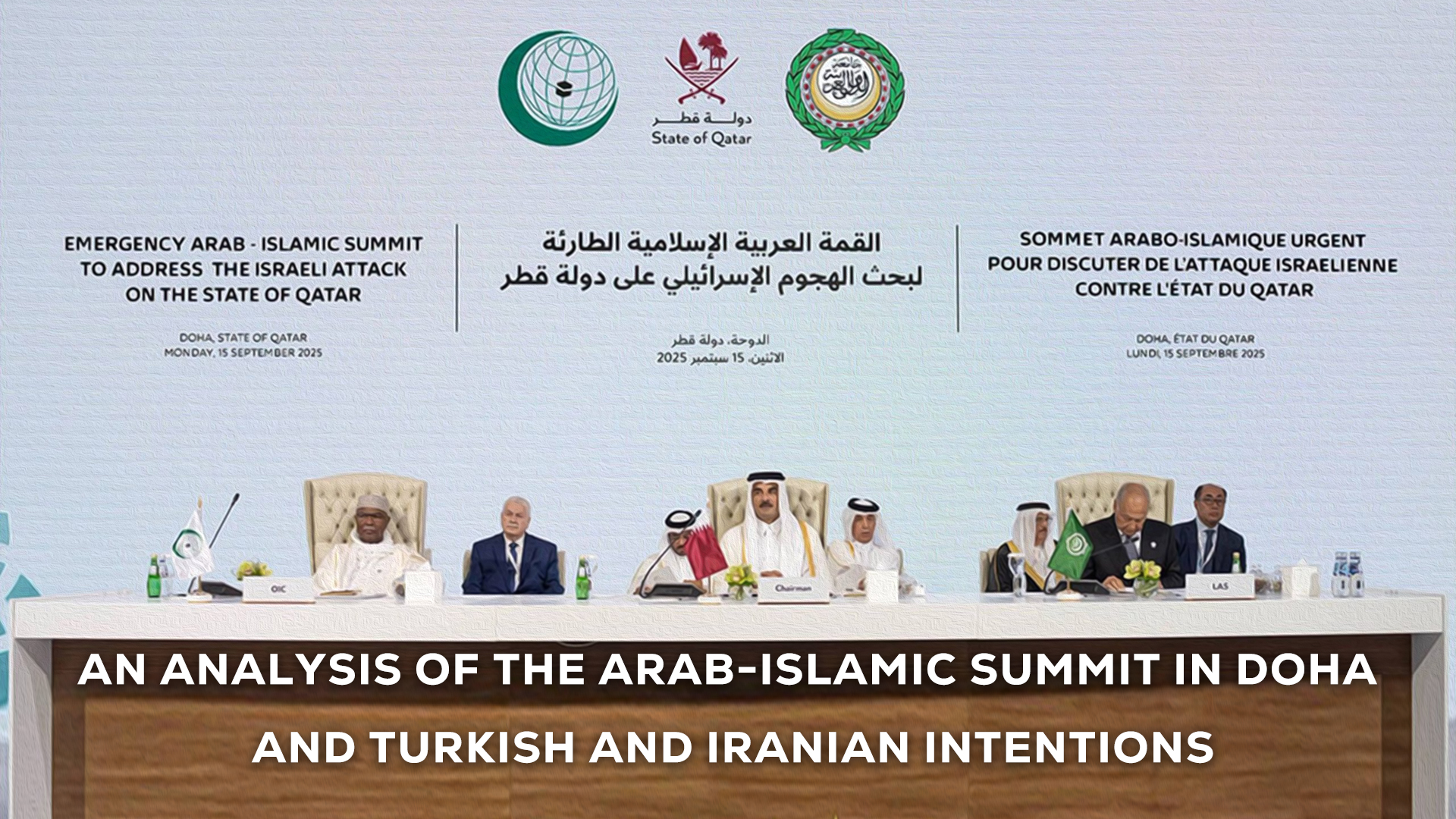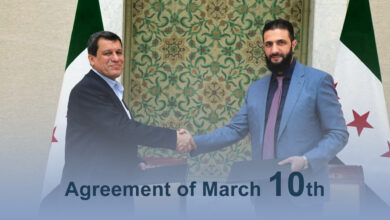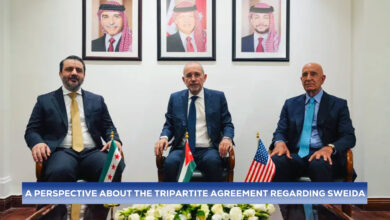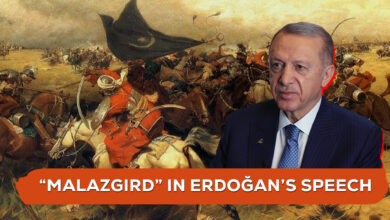An Analysis of the Arab-Islamic Summit in Doha and Turkish and Iranian Intentions
Dr. Ahmad Sino

The Arab-Islamic Summit convened in the Qatari capital, Doha, to discuss the response to the sudden Israeli attack targeting Hamas leaders involved in negotiations concerning hostages and a ceasefire in Gaza. The summit was held in parallel with a Gulf Cooperation Council (GCC) summit, which included GCC member states, but notably excluded the Sultan of Oman, the Emir of Kuwait, the King of Bahrain, and the President of the UAE, with their representatives attending in their stead. This absence highlights the lack of cohesion and complete alignment among GCC countries, especially regarding Qatar’s international and regional policy in supporting Islamic movements such as the Muslim Brotherhood, Hamas, Islamic Jihad, al-Nusra Front, and Hayat Tahrir al-Sham (HTS). Furthermore, Qatar has long been the preferred base for figures like Yusuf al-Qaradawi, who is known for his jihadist fatwas, and uses its financial surplus to support factions loyal to it for regional and international intervention, placing it in direct opposition to the UAE, Bahrain, and Kuwait.
Consequently, the Gulf summit held alongside the Arab-Islamic Summit was largely a formality to maintain face within the GCC, producing dead-letter resolutions that diverted attention toward the Arab-Islamic Summit. According to the final communiqué, the summit was limited to speeches dictated by the policies of non-independent states, most of which have strong ties with the United States. These countries echoed President Trump’s comments urging Israel to exercise caution and refrain from targeting Qatar again. Netanyahu, for his part, indicated that he would target Hamas leaders wherever they were. The speeches of the heads of state focused on possible measures to prevent Israel from continuing its aggression against the Palestinian people, reviewing diplomatic and economic relations with Israel, and insisting that Israel should not escape accountability. The Emir of Qatar, in particular, condemned Israel’s actions as “cowardly” and called for Israel’s suspension from the United Nations. Additionally, he emphasized that Israel was responsible for the failure of negotiations. Egyptian President Abdel Fattah el-Sisi even addressed the Israeli people, urging them to pressure Prime Minister Netanyahu to halt the war in Gaza—a goal that remains out of reach unless the hostages are released and returned home.
Notably, the Syrian president’s remarks were brief, offering solidarity with Qatar and condemning Israeli attacks on both Qatar and Syria. However, his condemnation appeared hollow, given that he is currently negotiating with Israel and is on the verge of signing several agreements concerning the southern regions, including Quneitra, the Golan Heights, and Mount Sheikh.
In reality, Israel has instilled fear in all Arab and Islamic countries, including Turkey, the Gulf states, and Iran. Regardless of the discussions at the Arab and Islamic summits, they remain futile and reduced to empty rhetoric, much like the military and defense committees, deterrence measures, and responses to Israel, which fail to meet the hopes of the public in these countries. The participants, in fact, used the conference to hold side meetings to advance their agendas, seeking submission to the West and securing regional protection, such as the bilateral meeting between the Iranian president and Saudi Crown Prince, and the latter’s meeting with the Prime Minister of Pakistan (a nuclear-armed Islamic state), where confidential agreements were signed, most of which concerned Saudi security.
The harsh truth is that Qatar has exceeded its regional and international standing, overstepping its bounds in both Gulf and Arab regional intervention. At the same time, Arab and Islamic countries have shown little seriousness in the outcomes of the summit and its statements. Several observations can be made from these conferences and meetings:
- The Arab-Islamic Summit issued no direct or indirect condemnation of international terrorism and its sponsors, out of fear that such language might implicate Turkey, Iran, or the interim Syrian president Ahmad al-Sharaa and his cabinet.
- Hamas was not criticized in any statement, as though its actions on October 7 were justified, proper, and accepted by all Arab and Islamic states.
- Responsibility for the war in Gaza—the destruction, hunger, displacement, and other consequences—is twofold, with the greater burden falling on Hamas.
- No Arab or Islamic state dared to sever ties with Israel or the United States. Even those that claim resistance to Israel and America seek covert rapprochement with them, practicing what Islamic jurisprudence calls “Taqiyya” (professing something contrary to reality).
- None of these states withdrew their ambassadors or canceled agreements with Israel, including Egypt, Qatar, and the UAE.
- If Arab and Islamic states had genuine intentions, they could have formed an Arab-Islamic negotiation committee, expelled Hamas from Gaza, saved the people of Gaza from extermination and destruction, and launched reconstruction efforts. The claims of Turkey and Iran go no further than serving their agendas with Israel.
Turkish Intentions
Turkish President Recep Tayyip Erdogan attended the summit seeking gains. He expressed readiness to provide defensive expertise and declared his support for Qatar in facing Israeli attacks, while overlooking his own incursions with allied armed factions in northern Syria and the ongoing occupation of Syrian territory. Erdoğan is well aware that hosting Hamas leaders could invite Israeli strikes, as Israel has explicitly threatened. Israel has already targeted his depots and bases in Syria, exposing his policies internationally and regionally, particularly his sponsorship of extremist factions. He also pressures interim Syrian president Ahmad al-Shar’a to stall in implementing the March 10 Agreement, aiming to diminish Kurdish and other minority rights in northern and eastern Syria.
Ultimately, Erdogan’s goal is to escape Turkey’s economic crisis and domestic turmoil by attending international and regional summits. Yet Israel continues to obstruct him, especially in Syria.
Iranian Intentions
Iranian President Masoud Pezeshkian asserted that no one is safe from Israeli attacks, calling for Islamic unity against Israel—while ignoring Iran’s role in fueling destruction through support for Hamas and Iraq’s Popular Mobilization Forces. He also disregards Tehran’s sponsorship of Hezbollah in Syria and Lebanon. Recently, Israel struck Lebanon, killing two Hezbollah leaders who were coordinating with cells inside Syria. Pezeshkian continues to resist confining weapons to the Lebanese state, instead threatening civil war in Lebanon. He likewise sustains support for the Houthis in Yemen, whose clashes with Israel erupt intermittently as leverage against the U.S. and Israel to advance Iran’s nuclear deal with the European troika (UK, France, Germany) and reopen negotiations with Washington. Tehran seeks to continue uranium enrichment, secure the lifting of U.S. and European sanctions, and release billions in frozen assets. Iran’s overarching goal is to preserve its political system and the doctrine of “Wilayat al-Faqih” under Supreme Leader Ali Khamenei. Israel, however, insists that regime change in Tehran is necessary to alter the geopolitical reality of Iran and the region.
The Autonomous Administration of North and East Syria (AANES)
The AANES remains open to engagement at domestic, regional, and international levels and is actively working to implement the March 10 Agreement with al-Sharaa. Yet Turkish interference casts shadows over the deal, as Ahmad al-Sharaa delays implementation due to overlapping agendas with Turkey’s ruling Justice and Development Party (AKP).
The AANES continues balanced cooperation with the International Coalition, including the U.S. and the European Union. It has taken a flexible stance regarding the Arab-Islamic Summit, focusing on efforts to achieve peace and stability in the region while remaining aware of the agendas of all parties. Its strategy is to build sustainable, balanced relations with Turkey and Iran—but not at the expense of the rights of local communities in those countries or elsewhere.




